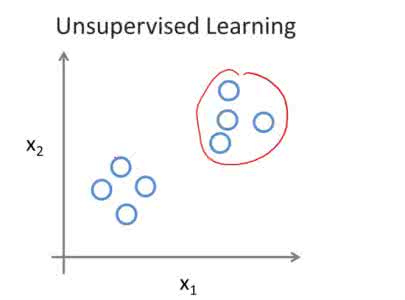Experimental data is often affected by uncontrolled variables that make analysis and interpretation difficult. For spatiotemporal systems, this problem is further exacerbated by their intricate dynamics. Modern machine learning methods are well-suited for modeling complex datasets, but to be effective in science, the result needs to be interpretable. We demonstrate an unsupervised learning technique for extracting interpretable physical parameters from noisy spatiotemporal data and for building a transferable model of the system. In particular, we implement a physics-informed architecture based on variational autoencoders that is designed for analyzing systems governed by partial differential equations (PDEs). The architecture is trained end-to-end and extracts latent parameters that parameterize the dynamics of a learned predictive model for the system. To test our method, we train the architecture on simulated data from a variety of PDEs with varying dynamical parameters that act as uncontrolled variables. Specifically, we examine the Kuramoto-Sivashinsky equation with varying viscosity damping parameter, the nonlinear Schr\"odinger equation with varying nonlinearity coefficient, and the convection-diffusion equation with varying diffusion constant and drift velocity. Numerical experiments show that our method can accurately identify relevant parameters and extract them from raw and even noisy spatiotemporal data (tested with roughly 10% added noise). These extracted parameters correlate well (linearly with $R^2>0.95$) with the ground truth physical parameters used to generate the datasets. Our method for discovering interpretable latent parameters in spatiotemporal systems will allow us to better analyze and understand real-world phenomena and datasets, which often have uncontrolled variables that alter the system dynamics and cause varying behaviors that are difficult to disentangle.
翻译:实验数据往往受到不受控制的变量的影响,这些变量使得分析和解释变得困难。对于随机随机系统来说,这一问题会因复杂的动态而进一步恶化。现代机器学习方法非常适合模拟复杂的数据集,但为了在科学中有效,结果需要被解释。我们展示了一种不受监督的学习技术,从吵闹的波浪时间数据中提取可解释的物理参数,建立系统可转移的模型。特别是,我们实施了基于可变自动读数结构的物理信息化架构,该结构旨在分析由部分差异方程式(PDEs)管理的系统。这个结构是经过训练的从尾到尾的参数,并提取了潜伏参数,这些参数使系统能够将所学的预测模型化。为了测试我们的方法,我们用各种具有不同动态参数的 PDE 来模拟数据,这些参数的作用是不受控制的变量。我们用 Kurammotomoto-Sivshinshipal 等式公式来研究(变量变异的变异的变异性调调调调调调调调调调),Schrnline\\'dograduning commodiversal dalal liversal-liversal dal dal dal liversalmovald sy sys) 系统能化了我们10-movald dal 和变化的变化数据系统。



























































